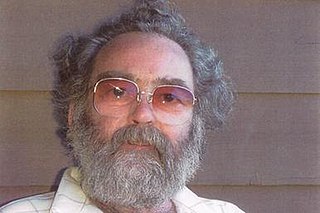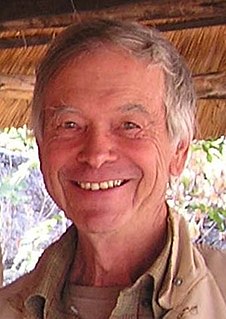A Quote by Robert Anton Wilson
Belief in the traditional sense, or certitude, or dogma, amounts to the grandiose delusion, "My current model" -- or grid, or map, or reality-tunnel -- "contains the whole universe and will never need to be revised." In terms of the history of science and knowledge in general, this appears absurd and arrogant to me, and I am perpetually astonished that so many people still manage to live with such a medieval attitude.
Quote Topics
Absurd
Am
Appears
Arrogant
Astonished
Attitude
Belief
Certitude
Contains
Current
Delusion
Dogma
General
Grandiose
Grid
History
History Of Science
Knowledge
Live
Manage
Many
Map
Me
Medieval
Model
Need
Never
People
Reality
Science
Sense
So Many People
Still
Terms
The History Of
Traditional
Tunnel
Universe
Whole
Will
Related Quotes
Belief Systems contradict both science and ordinary "common sense." B.S. contradicts science, because it claims certitude and science can never achieve certitude: it can only say, "This model"- or theory, or interpretation of the data- "fits more of the facts known at this date than any rival model." We can never know if the model will fit the facts that might come to light in the next millennium or even in the next week.
The point is that (little-t) truth is a matter of definition relative to the grid one is using at the moment, and that (capital-T) Truth, metaphysical reality, is irrelevant to grids entirely. Pick a grid, and through it some chaos appears ordered and some appears disordered. Pick another grid, and the same chaos will appear differently ordered and disordered. Reality is the original Rorschach. Verily! So much for all that.
What a lost person needs is a map of the territory, with his own position marked on it so he can see where he is in relation to everything else. Literature is not only a mirror; it is also a map, a geography of the mind. Our literature is one such map, if we can learn to read it as our literature, as the product of who and where we have been. We need such a map desperately, we need to know about here, because here is where we live. For the members of a country or a culture, shared knowledge of their place, their here, is not a luxury but a necessity. Without that knowledge we will not survive.
Because of its concrete content, sense-certainty immediately appears as the richest kind of knowledge, indeed a knowledge of infinite wealth for which no bounds can be found, either when we reach out into space and time in which it is dispersed, or when we take a bit of this wealth, and by division enter into it. Moreover, sense-certainty appears to be the truest knowledge ... but, in the event, this very certainty proves itself to be the most abstract and poorest truth. All that it says about what it knows is just that it is; and its truth contains nothing but the sheer being of the thing.
In science, the whole system builds on people looking at other people's results and building on top of them. In witchcraft, somebody had a small secret and guarded it - but never allowed others to really understand it and build on it. Traditional software is like witchcraft. In history, witchcraft just died out. The same will happen in software. When problems get serious enough, you can't have one person or one company guarding their secrets. You have to have everybody share in the knowledge.
I was attacked the other night for being grandiose. I would just want you to note: Lincoln standing at Council Bluffs was grandiose. The Wright Brothers standing at Kitty Hawk were grandiose. John F. Kennedy was grandiose. I accept the charge that I am grandiose and that Americans are instinctively grandiose.
I am a drifter, and as lonely as that can be, it is also remarkably freeing. I will never define myself in terms of anyone else. I will never feel the pressure of peers or the burden of parental expectation. I can view everyone as pieces of a whole, and focus on the whole, not the pieces. I have learned to observe, far better than most people observe. I am not blinded by the past or motivated by the future. I focus on the present because that is where I am destined to live.





































